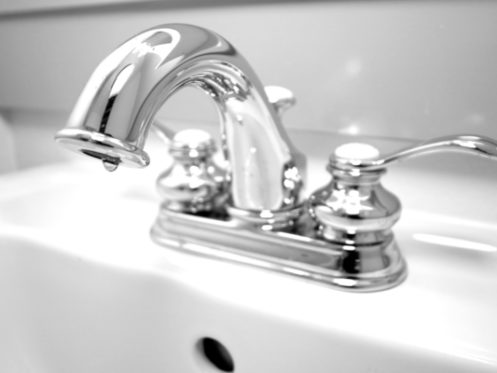Do you ever question why your water has a certain taste or odor? Have you ever noticed that sometimes there is more sediment in your glass than at other times? Poor water quality can have many implications, from causing minor nuisances to more impactful health issues. Below is a breakdown of the various factors that could contribute to your water quality.
The team at Twin Peaks Plumbing, Heating & Gas explains how different factors affect your home’s water quality and how a water filtration system could improve it.
Your Water Source
Depending on where you live, your home may get water from a public supply or a private well. Public water supplies are treated with chemicals to kill bacteria and other microorganisms. The effectiveness of these treatments can vary by area. Private wells require periodic testing because they are not regulated by any government agency and can be more prone to contamination.
During rainy times, there may be more surface runoff, introducing pollutants from farms and other sources into your water supply. This runoff affects those who rely on private wells, as they are not treated with chemicals to reduce contaminants.
Aging Pipes
Over time, pipes can corrode and deteriorate, resulting in sediment or rust particles entering your water. Lead pipes may also contribute to poor water quality since lead can leach into the water supply. Lead exposure causes serious health issues, so it’s crucial to have your water tested for lead if you suspect this may be an issue.
Poor Maintenance
Quality and maintenance go hand in hand when it comes to your plumbing system. If the pipes are not properly maintained, there is a greater chance of contaminants entering your water supply. Maintenance tasks can be as simple as changing your drinking water tap’s filter or inspecting your pipes for any potential damage or leaks.
Home Renovations
If you are doing any home renovations or construction, this can also contribute to poor water quality. This is especially true if any of the work involves disturbing the existing pipes in your home or introducing new fixtures into the plumbing system. For example, if you add a sink or toilet to a room that doesn’t currently have one, particles from drilling or soldering could get into your drinking water. Therefore, it is necessary to take extra precautions when changing out plumbing fixtures and to ensure all new parts are installed and sealed properly.
Location
Although you can’t control it, where you live can affect your water quality. For example, if you live in a rural area, there may be more agricultural runoff and contaminants in the groundwater supply. If you are near a larger metropolitan area, there could be higher levels of chlorine or other chemicals used to treat public water supplies.
It is critical to know what is in your local water supply so that you can take steps to treat it according to your needs. For example, if the chlorine levels are too high, you can install a filter system to reduce them before drinking or using the water for cooking or bathing.
Water Softening
Many homeowners think softening their water can improve the taste, but this process can also affect its quality. For example, if a water softening unit is not maintained correctly and salt levels are too high, this can create an environment where bacteria or other contaminants can thrive.
If you use a water softener system in your home, ensure that you keep up with regular maintenance and testing to ensure everything is working correctly. Doing this will help you avoid any potential problems with your water supply.
Pets
This may surprise some, but pets can affect the water quality in your home. If you have an indoor pet that is not house trained, their waste can contaminate the water supply with bacteria and germs if not disposed of properly.
Leaving pet food or treats out overnight can also attract pests such as rodents and insects and contaminate your drinking water. Make sure you promptly clean up any spills or messes to reduce the risk of water contamination due to your furry family members.
Conclusion
Your home’s water quality is crucial for staying healthy and safe. Unfortunately, many factors can affect the water quality, including plumbing fixtures, renovations, location, and pets. At Twin Peaks Plumbing, Heating & Gas, we provide a wide range of plumbing services and HVAC services. We also offer emergency plumbing services and tankless water heater installation. Our team proudly serves Nanaimo, British Columbia, and the surrounding areas. Contact Twin Peaks Plumbing, Heating & Gas today to inquire about our services.

